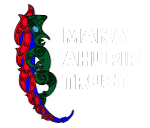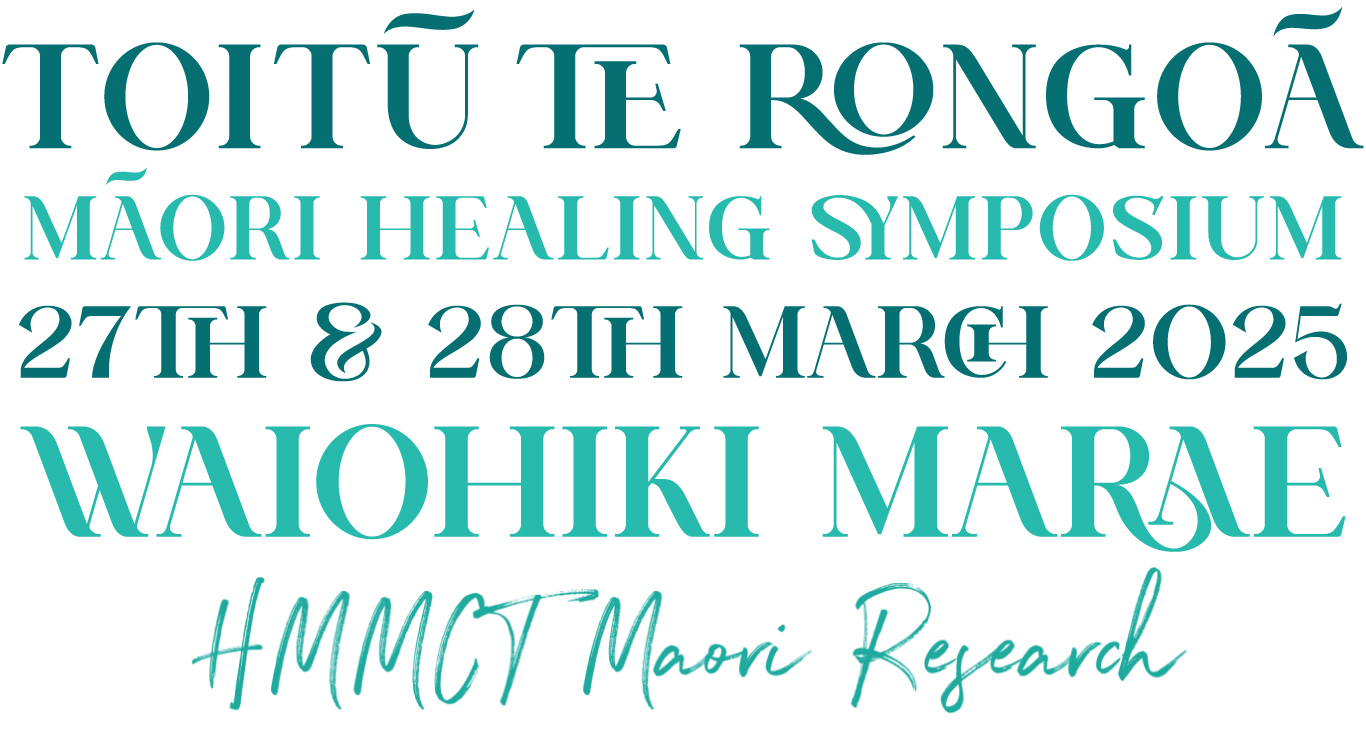
Join us for an inspiring and transformative Rongoā Māori Symposium, bringing together an exceptional lineup of Māori keynote speakers, healers, and experts dedicated to the health and wellbeing of our people. This symposium will provide a unique opportunity for health professionals, academics, and whānau to engage with renowned Tohunga, Tohuna, Kai-Rongoā, Kai-Romiromi, Kohanga Reo Kaiako, Kai-Karakia, Organic Permaculturalists, Health & Science Psychologists, and Māori entrepreneurs who embody the wisdom of our ancestors while addressing contemporary health challenges.
Our distinguished speakers and workshop facilitators are leaders in their fields, meeting the unmet needs of our communities through holistic healing, indigenous health practices, research, and innovation.
We are honored to welcome:
Dr. Charlotte Mildon, Jennifer Takuta-Moses, Greta Carney & Jody Hamilton, Kay Robin & Jody Toroa, Dr. Lyn Doherty, Jen Rangiawha, Cordry Huata, Moana Skipwith-Lousi, Tracy Haraki, Dessa Walker, Miri Cracknell, and Raewyn Morrell.
This symposium is an opportunity to learn, share, and connect, whether you are a practitioner, researcher, health professional, or community member passionate about Māori wellbeing.
Nau mai, haere mai! We invite you to join us at Waiohiki Marae on Thursday 27th & Friday 28th March 2025.

Kia ora e te whānau, arohamai but there is no accomodation available on the Marae for the symposium.

Thursday 27th March 2025
- 9:00 Powhiri.
- 10:00 MORNING TEA.
- 10:20 Karakia: Cordry Huata. Housekeeping
- 10:30 Keynote Address: Dr. Charlotte Mildon ‘A Kaupapa Māori Analysis traditional Māori healing Romiromi’.
- 11:45 Small group presentations (30 mins)
- Workshop 1. Jennevieve Rangiawha: ‘Detoxing for Cancer & Chronic Diseases’
- Workshop 2. Dessa Walker: ‘Rongoā Māori & Romiromi @ Kohanga Reo’
- 12:30 LUNCH
- 1:30 Keynote Address: Kay Robin & Jody Toroa ‘Tu Wairua te Whare Atua’
- 2:30 Online Presentation: Dr. Lyn Doherty: Tu Mai te Oriori, Nau mai te Hauora
- 3:00 AFTERNOON TEA
- 3:15 Workshops (30 mins)
- Workshop 3. Moana Skipwith-Lousi ‘Rongoā for Whānau in the home’
- Workshop 4. Cordry Huata. ‘Karakia invokes the personified ancestors of nature’
- 4:30 Happy Hour Networking
- 5:30 Kua Mutu
Friday 28th March 2025
- 9:00 Karakia: Cordry Huata
- 9:15 Keynote Address: New Keynote to be confirmed. Due to illness Atarangi Murupaenga has had to decline. Watch this space!
- 10.30 Panel: What is traditional Māori Healing Rongoā and Romiromi? Cordry Huata, Jennifer Takuta-Moses, Dr. Charlotte Mildon.
- 11am MORNING TEA
- 11.15am
Workshop: Tracy Haraki ‘He kai-rongoa, he kanohi kore e kitea i te waahi mahi’ - 12:30 LUNCH
- 1:30 Keynote Address: Greta Carney: ‘He Kai He Rongoā, He Rongoā Kai’
The Gene Technology bill is the most significant assault on our sovereignty. - 2.30 interactive presentation (45 mins).
Workshop 1. Weekly kai boxes, kai rongoā growing and cooking.
Greta Carney & Jody Hamilton: Mai Kai Social Enterprise at the Hapī Café. - 3: 15 AFTERNOON TEA
- 3:30 ‘Traditional Māori healing for High needs whānau in Ahuriri’ research project funded by the Mana Ahuriri Trust (printed copy in your satchel).
- 4.00 Closing comments
- 4:30 Closing Karakia: Cordry Huata.
- 5:30 Kua mutu.

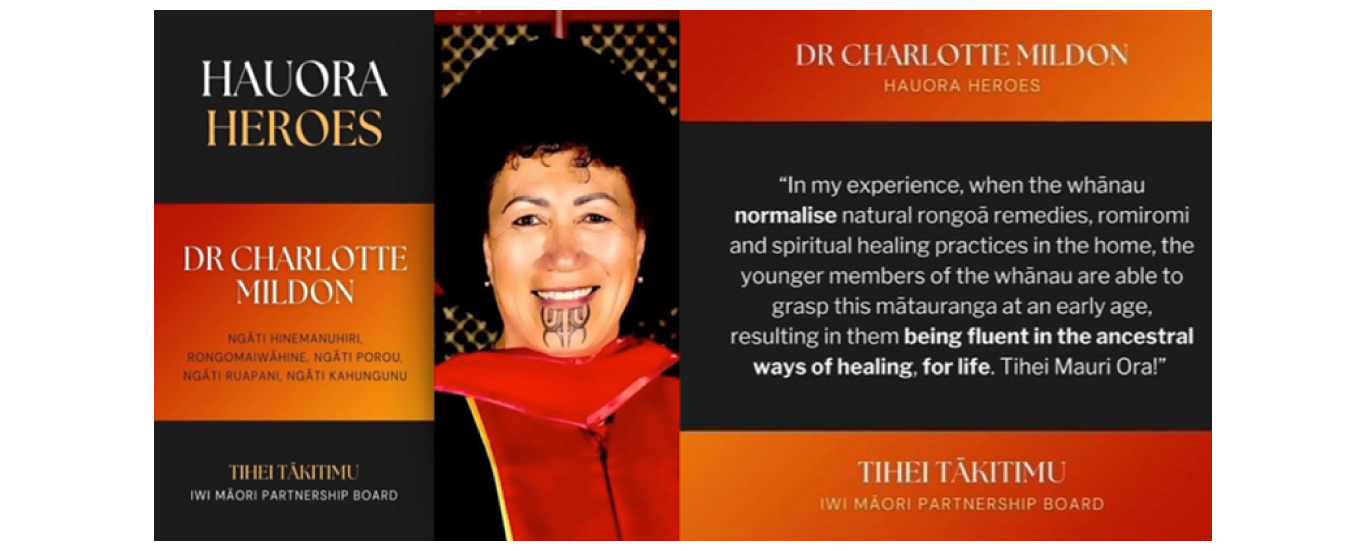

Dr Charlotte Mildon, has provided traditional Māori healing services in Hawkes Bay for over 30 years. Her doctoral research was foundational in assisting the Accident Compensation Corporation (ACC) Rongoā Māori Services Contract in 2020 and she was contracted as an advisory panel member to roll out the services throughout Aotearoa.
Dr Mildon has been the coordinator and the main facilitator of Te Waka Tapu o Takitimu Romiromi & Rongoā Wānanga series in Hastings, Napier, Te Wairoa and Te Mahia, funded by Te Whatu Ora. Her focus was to normalize the ancestral healing ways for the whole whānau in the home rather than create a dependence upon health professionals and Rongoā practitioners.
The Tihei Takitimu iwi partnership board acknowledged Dr. Mildon as a Hau Ora Hero in 2024 based on feedback from her lifetime’s work in the community. At the Ngāti Kahungunu Rongoā Wellbeing Symposium in 2024 she also received 4 awards for leading local community healing projects.
As the chair of the Aotearoa Rongoā Māori Collective Charitable Trust, Dr Mildon and her team coordinated wānanga to stop Rongoā from being included in the Therapeutic Products bill in 2023. Copies of the ‘Ahuriri Mental Health Act Review’ project and the Rongoā Report of High Needs Whānau in Ahuriri will be in your satchels.
The professors from Te Whare Wānanga o Awanuiārangi congratulated Dr Mildon as the first Māori academic researcher who had lived and practical experience in traditional Māori healing romiromi and rongoā. The key findings of her doctoral research will be presented here.

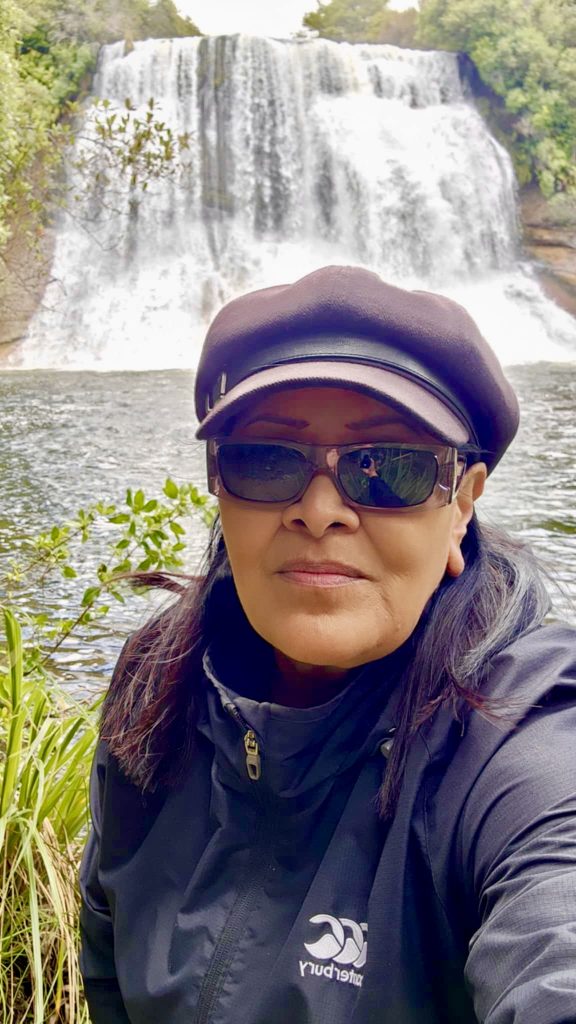

He Pepeha o te Tohunga Rongoā nei
Ko Panekire taku maunga ihiihi.
Taku maunga tiketike, taku maunga karangaranga.
Ko Waikaremoana whanaungakore, me hoea nei taku moana te wai tukukiri o aku maatua tipuna e ngunguru nei.
Ko Haumapuhia te tipua i ngaro atu ki Whangaromanga e kore e kitea ae te ra mai te tairawhiti.
From an early age, Jennifer Takuta-Moses was taught the ancient practices of Rongoā by her mother. These teachings became the foundation of her life’s work as a Tohunga Rongoā, dedicated to preserving the traditional Māori healing practices rooted in the native flora of Waikaremoana. As a teacher of Rongoā, Jennifer shares the art of maintaining harmony in the body before death, a wisdom imparted to her by her mother in her final days.
Jennifer speaks of our natural environment as a spiritual whare, holding the ancient mātauranga gifted by Tāne and his twin flame Hinekura, ngā kaitiaki of the traditional Māori healing practices in the ngahere. The tikanga and kawa of Te Ao Rongoā are deeply rooted in the discipline of her ancestors, the Tohunga and Tohuna Māori, who lived and embodied the practices of Tuhoe, Potiki, and Toikairākau, all of which existed before colonialism imposed restrictions and controls on health practices in favor of Western pharmaceuticals.
While Jennifer and her roopu gather only what is necessary for their Rongoā program, they face challenges in navigating local government regulations and resource management processes that affect tangata whenua. Jennifer will also share her experiences in offering her Rongoā program to support the mamae (pain) and māuiui (illness) in her rural community, particularly in the aftermath of ongoing floods. Her focus was on the well-being of kuia and koroua, helping restore balance and harmony through the romiromi of Papatūānuku on all levels.
Join us in welcoming Jennifer as she shares her life’s journey, where Rongoā is not only a healing practice but also a profound mystery, a gift of ancient Māori healing wisdom passed down to us for the restoration of holistic health and well-being.


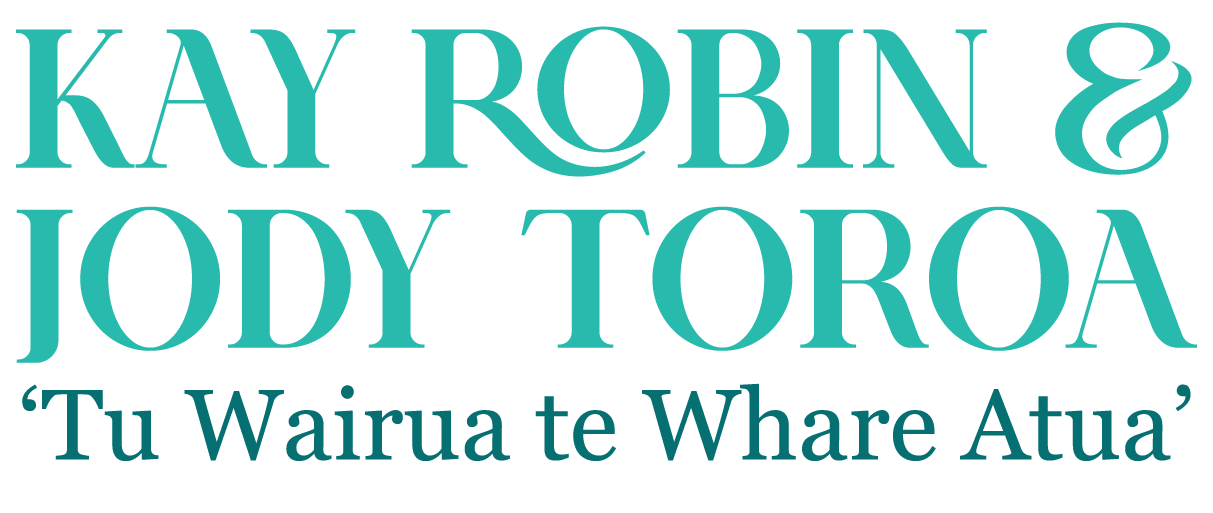
As Ngāti Rangiwaho trustees, Jody Toroa and Kay Robin play a key role in a clinical study that uses mushrooms containing psilocybin, a natural psychoactive rongoā, that has long grown in our ngāhere in Aotearoa. The main focus of the study is to find a way to care for whānau who are caught in the grips of meth addiction, mental illness and PTSD in our communities on the East Coast. It is very exciting to reclaim the traditional mātauranga rongoā as this tapu taonga has the potential to heal whānau in our communities right throughout Aotearoa. The Tu Wairua collaboration that is researching the therapeutic potential of Psilocybin, includes the Rangiwaho marae, the Rua Bioscience biotechnology, the Manaaki Whenua Landcare Research, the Institute of Environmental Science and Research (ESR) and the Mātai Medical Research Institute. Their moemoeā is that marae in different rohe will also get an opportunity to one day have a license to grow and harvest their own psychoactive rongoā to heal their whānau in their community.



The Crown is fast tracking the Gene Technology bill that means our food sources will be Genetically Modified and Greta Carney believes that this bill is the most significant assault in our sovereignty as tangata whenua that we will see for some time. Come and learn what this will mean for us and the effects this will have on Papatūānuku and all her progeny.
Greta Carney Founder/Owner/Operator the Hapī Ora Café that offers a wide range of kai-rongoā in Ahuriri. Being of Te Atihaunui a Pāpārangi descent, Greta’s link to Ngāti Kahungunu is through Rongorongo (the daughter of Tamatea Ariki Nui, the kuia of Kahungunu), who married Turi Arikinui, Kaihautu of Te waka tipua o Aotea. She really is an icon in our community. Greta has a life time of experience in growing organic kai rongoā as a result of being a Classical Homeopath, a co-director of the Organic Catering Company in Wellington, a researcher for OANZ (Organic Aotearoa New Zealand), a project manager of the Hua Para Kore Organic Verification Program, as well as a member of the Aotearoa delegation to the Terra Madre International Slow Food Meeting of Indigenous Food Producers in Italy. With a National Diploma in Biodynamic Organic Agriculture, Greta’s maara kai in Awatoto has a selection of Kai Māori including kumara, hue, kamokamo and a variety of organic raw and plant-based options that are gluten, dairy, and cane-sugar free paleo kai-rongoā options.


Dr Lyn Doherty, a Health & Science Psychologist of Ngāti Porou and Ngāpuhi descent is a founding member of the Ohomairangi Trust (OT), a kaupapa Māori Early Intervention Service in Tamaki Makaurau. With 30+ years expertise in special education, early interventions and psychology, the historical and intergenerational trauma has had constant challenges.
To maintain whānau cohesion and resilience, these support systems were developed: Poipoia Ngā mokopuna – getting to know your unborn baby antenatal groups and Hoki ki te Rito – Oranga Whānau – an attachment-based parenting program with separate groups for mothers, fathers and tamariki that run alongside early intervention for whānau with young children with additional support needs, and/or with parents and caregivers with addictions.
Research proved to be an essential part of this work and an opportunity to integrate mātauranga Māori healing practices into the service model arose. Dr. Charlotte Mildon, Tohuna Romiromi, has been contracted to work with whānau and kaimahi for the last 6 years with the Ohomairangi trust staff and the whaiora who are participating in any of the programs. Her work in facilitating wānanga with the whānau includes romiromi, mirimiri and rongoā healing for the whole whānau; pepi, tamariki, rangatahi, pakeke and kaumatua. The wānanga work alongside 1:1 sessions for individuals or whānau groups – sometimes with up to 4 generations participating. Results will be shared in this presentation.



Greta Carney, the founder/owner/operator of the Hapī Café of Te Atihaunui a Pāpārangi descent and Jody Hamilton, of JMP Consulting who is of Ngāti Kahungunu, Ngāti Raukawa, Ngārauru descent, will showcase the kai box, kai rongoā growing and cooking approach in the Mai Kai social enterprise. Five years of community engagement and project development with the local Te Matau a Māui rohe led to the development of the Mai Kai food box initiative. Prior to the highly processed foods like refined cane sugar, wheat flour, excessive salt, chemical preservatives, additives and bad fats that are making our whānau mauiui, our tupuna once participated in the growing, harvesting and preparation of kai as a rongoā.
Ngāti Kahungunu have the highest negative health and mental health statistics in Aotearoa so growing and eating organic whole foods has the potential to heal chronic diseases naturally, making the lifetime prescription of harmful synthetic drugs redundant. The Mai Kai kaupapa empowers whānau with growing, harvesting, cooking and eating nutritious kai for better health outcomes which in turn role models kai rongoā in the home for our tamariki and mokopuna.
The Mai Kai Social Enterprise overview will be presented as an interactive workshop that will feature the kai growing and cooking approach that we are delivering through the initiative. Come along and be a part of this exciting community initiative.

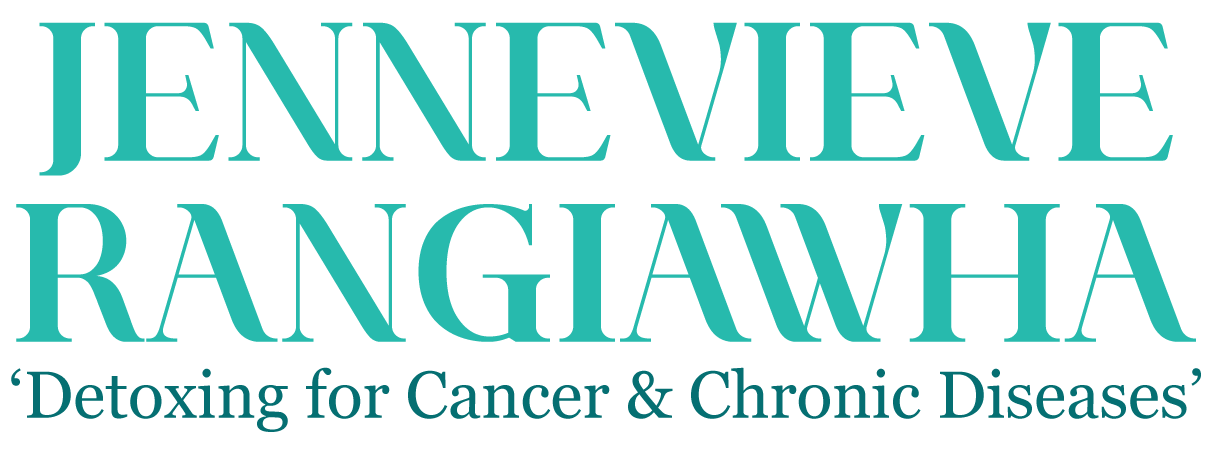
Jen is of Ngāti Wehi descent from the Tainui waka and married into Ngāti Kahungunu at 15 years old. In her childhood, her grandmother, Rangipokanga Rangiawha nee Maihi, performed rongoā healing rituals and practices that played a pivotal part in influencing her career path later in life. Her first language was te reo, but she lost it at 15 years old when she moved to Heretaunga. Both her Nanny and Mum were fluent in te reo and matatau (expert) in rongoā Māori mātauranga. Being raised with 17 other children, her kuia used karakia and rongoā to heal them at home. If any of them got sick, she knew if they were either spiritually, mentally, or physically out of balance and would consider where they went, what they had eaten or what they had not observed. Only then would she give them either a rongoā to take orally or clean them out with an enema to purge the mauiui out of the body physically while the old karakia Nanny performed would restore the mental, emotional or spiritual imbalances.
In her twenties, as a single parent of 5 children, Jen had to work with a naturopath as she had been diagnosed with stage 4 cancer with only 6 months to live. Jen refused the chemotherapy and radiation cancer treatment and chose to make her body alkaline instead because in naturopathy, she learned that disease cannot survive in an alkaline body. Just like her Nanny, Jen was using natural remedies that fascinated her. There were no Rongoā courses in those days and natural healing just ‘made so much more sense’ so Jen became a naturopath to heal the cancer and nurse herself back to health as there was no way she was going to leave her children on their own.
At 62 years old, having never had cancer treatment, Jen has continued to work with cancer patients for 30 years as well as people with chronic diseases, so they can heal naturally. She mentors whaiora to detox and cleanse the body systems and organs with better choices of kai rongoā, hydrating the body with water for cleansing and recommending a range of organic Nature’s sunshine health supplements.
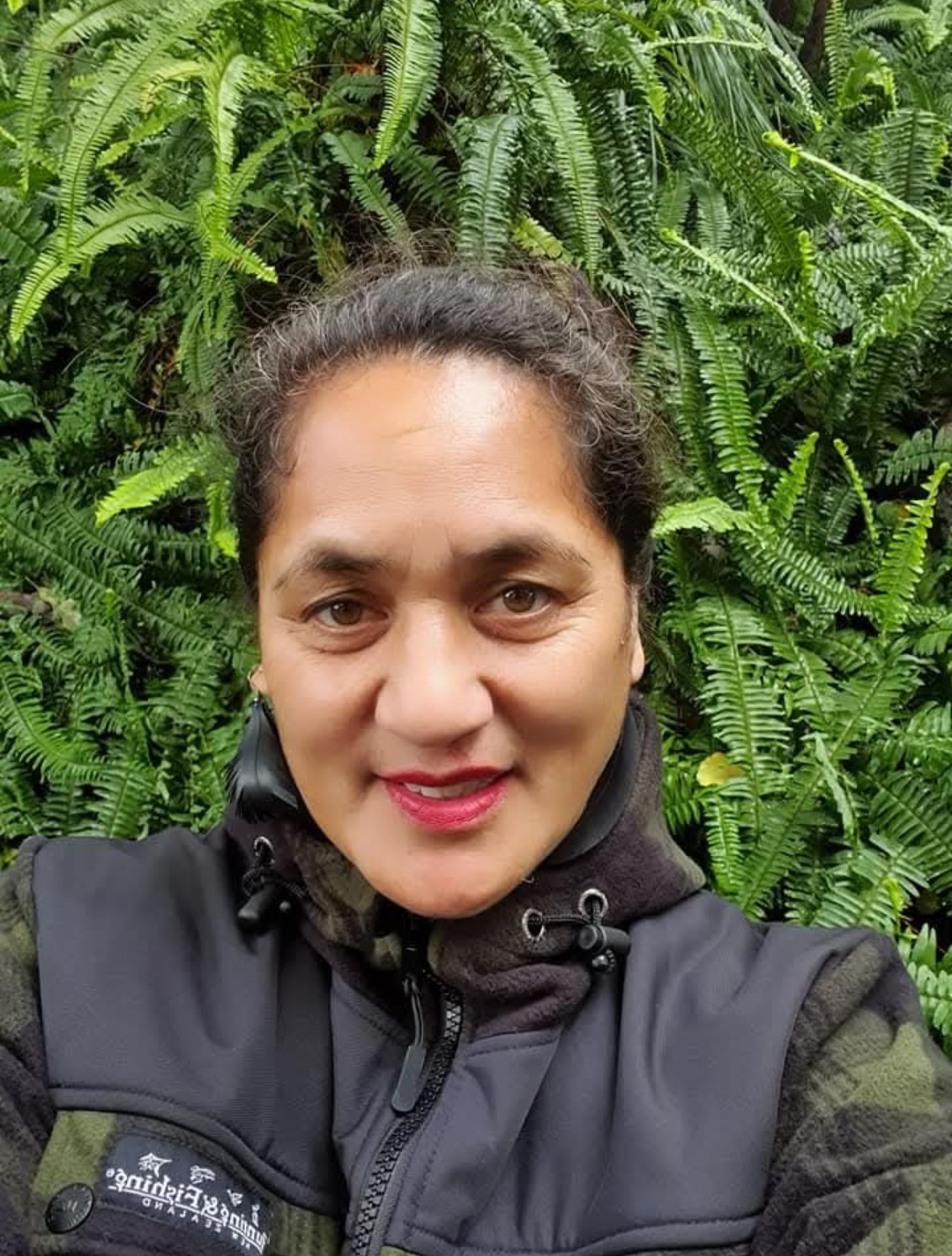

He uri tēnei nō Ngā Puhi, Tainui, Tūhourangi, Te Arawa, Ngāti Raukawa, Ngāti Kahungunu ki Wairarapa, Ngāi Tahu me Waitaha. Founder of Manaaki Therapies and Moana Māori Healing (since 2014), and practitioner of romiromi, mirimiri, and rongoā rākau.
He Whakataukī: Nāu te rourou, nāku te rourou, ka ora ai te iwi.
With your food basket and my food basket, the people will thrive.
Moana’s introduction to healing began when her brother, Nephi Skipwith, a student of the late Tohunga Ahurewa (priest of a higher order) Hohepa Delamere (Papa Joe – Te Whānau-a-Apanui), who introduced her to the Māori Healers. Her first experience with this traditional form of healing came after being on a course of antidepressants for three months to counter the effects of post-natal depression. Moana received a mirimiri from a past student of Papa Joe and maintains that this one session did more for her than three months of medication. She decided she would like to seek out a teacher (he wahine Māori) of Māori healing so she could help other women like her. A year later, Moana was accepted into the MAPAS (Māori and Pacific Admission Scheme) program at Auckland University (pre-med). She planned to study midwifery the following year at AUT. However, she found some of the approaches of conventional medicine were unsettling. Instead of pursuing Midwifery she chose to study at the NZ College of Massage to explore natural therapies with the intention of pursuing Māori healing once she graduated.
Moana followed and attended clinics with Ngāti Kuri Tohunga Romiromi, the founder of the Māori Healers, Atarangi Muru, until finally approaching her in 2011 to become a student. Atarangi accepted graciously and set many tasks for Moana, teaching according to the needs of whānau attending the clinic on the day. With her guidance, Moana worked on hundreds of individuals, quietly developing the teachings passed on by Atarangi, her brother Nephi, and the late Manu Korewha who was a Ngāpuhi Tohunga Ahurewa.
Moana first met Dr. Mildon in 2017 when hosting the Māori Healers in Waikato. During this time, she was interviewed alongside Dr. Mildon and Manu Korewha on Radio NZ. Since 2022, Moana co-facilitated romiromi wānanga with Dr. Mildon and more recently, is presenting rongoā at the Te Waka Tapu o Takitimu Rongoā and Romiromi wānanga in Central Hawkes Bay, Ahuriri, Heretaunga, Te Wairoa and Te Mahia. Moana will showcase her experiences of her love for sharing Rongoā and Romiromi with the whole whānau!


Dessa is of Rongomaiwahine, Kahungunu and Ngāti Porou descent. She recalls being worked on by the Tohuna Charlotte Mildon in 2022 with a long-term ACC concussion injury, unable to return to work. As she progressed, Dessa started to heal and became inspired to learn more about traditional Māori healing romiromi and rongoā practices that she had experienced with Charlotte. Under Tohuna Charlotte’s guidance, she continued to attend the Takitimu wānanga series to learn about kawakawa poulticing, romiromi, mirimiri as well as matching mauiui with rongoā wairakau and balms. More recently, dessa has been engaging with the detoxing program with living food and supplements with Jennevieve Rangiawha to cleanse and heal the body’s organs.
Due to her progress, Dessa started work as a Kohanga Reo teacher in 2023 where there are 16 tamariki, 2 kaumatua, 3 rangatahi and one other pakeke. When the cyclone hit in 2023, the kohanga had extensive damage and Dessa assisted Tohuna Charlotte one day a week to work whānau who had been traumatized by the floods. The volunteers worked tirelessly at different marae as well as the Tamatea Clubrooms where the Waiohiki whānau were temporarily living and then later at the Co Lab in Taradale where the healers set up each weekend to help release the trauma and provide rongoā for the local whānau. Similarly, with the Waiohiki Kohanga, Dessa took a leadership role to share these healing lores with the staff, the rangatahi, the parents and the tamariki, performing romiromi and making rongoā wairakau as well as poulticing to draw out mamae and mauiui.
In 2024, Dessa supported the Rongoā report for High Needs Whānau in Ahuriri research project for about 5 months. The healing outcomes for whānau never ceased to amaze Dessa which further fueled her passion to embrace the ancestral teachings of rongoā and romiromi even more. Dessa set out work with the Nannies in Waiohiki with her newfound healing skills and the healing continued to flow on through all the generations. She claims that the ongoing wānanga with Tohuna Charlotte has been a never-ending abundance of learning that has been life changing for her, her kuia, her whānau, and her mokopuna. Dessa will share some of her experiences in this workshop about her healing journey at the Kohanga Reo.


Ko te amorangi ki mua, Ko te hapai o ki muri.
E rere e te huata hopukia! E rere e te manuka tomokia!
Piki ake kake ake ki te tihi o Manono.
Mahia te mahia kia puta ngā hua ki te ao
Kia tuturu whakamaua kia tina
Cordry’s values and principles in life are taken from this whakataukī.
Cordry attained a Bachelor of Arts and a Master of Arts in Māori studies with honours at the Auckland University. He continued his post grad studies at Te Wananga o Raukawa being awarded a Tahuhu Whakaakoranga (Masters in teaching). He was a researcher for the Hastings Dept of Social Welfare, Ngāti Pahauwera Inc, and the Gwavas Waitangi Tribunal Claim. Apart from teaching, his passion is to facilitate annual whakapapa and karakia wananga for the marae, whānau, hapu, iwi and kura kaupapa Māori.
Cordry is the chair of the Mangaroa Marae Committee (whakapapa), deputy chair of the Heretaunga Tamatea Settlement Trust, a trustee of the Kura Kaupapa o Ngāti Kahungunu ki Heretaunga Board, the Ramoto and Hinenuitera marae. He is of Ngāti Kahungunu ki Te Wairoa, Ngāti Kahungunu ki Heretaunga, Rangitane, Te Whānau a Apanui, Taranaki, Ngāti Ruapani, and Ngāti Rongomaiwahine.
With a wealth of knowledge and expertise in Mātauranga Māori, whakapapa and karakia, Cordrey will join Atarangi Murupaenga and Dr Charlotte Mildon on the panel to discuss What is and what isn’t rongoā?
Cordry will also present a workshop presentation on how ‘Karakia invokes the personified ancestors of nature’


‘He kai-rongoā, he kanohi ka ‘He kai-rongoa, he kanohi kore e kitea i te waahi mahi’ Kai-rongoā being invisible in the workplace’
He uri ahau ko Porourangi rātou, ko Rongomaiwahine, ko Kahungunu, ko Rangitane. Ko Tracy Peterson nee Haraki toku ingoa. I am a rongoā Māori practitioner working at Te Tāpui Atawhai Auckland City Mission in Tāmaki-makau-rau. Although I was initially contracted as kai-romiromi to work with the staff, this was extended to work with some of society’s most vulnerable people in need in the city. Heoi ano, he kanohi kore e kitea!
From infancy, in the transmission of spiritual gifts and abilities, my kuia and koroua guided me i ngā rangi tūhāhā so that one day I would carry on the sacred mahi of my ancestors. At six years old, my abilities were blocked as a result of the trauma of abuse and those painful memories were repressed. However, those abilities were imprinted in the cellular memory of my body as an infant and so my innate sense of knowing unknowingly, maintained some of the ancient healing practices of our ancestors.
The guidance and teachings I received led me to be formally trained as a registered nurse, certified by Tohunga Wiremu Niania as a Matanga mahi wairua practitioner, Tohuna Dr Charlotte Mildon in Te Oomai Reia Romiromi and, supported by Marama Mata in Te Rau Aroha alignment, the founder of the House of Rehua. As a nurse, I advocated tirelessly in the community, empowering people to take charge of their own holistic health and wellbeing. In this presentation, I will share some of my most recent challenges in my work.
